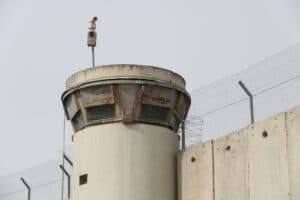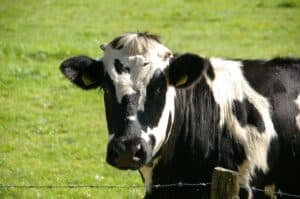Text and photos by Steve Pavey

Everyone who comes to Standing Rock and joins their first community meeting, after the early morning prayers for the sacred water, will be asked to join in communal agreements, or offer their reason not to. The first agreement we make is that we are all here to protect the water, which means we must stop the construction of the Black Snake (name for the DAPL pipeline). We all enter into agreement then to become “Water Protectors,” not protesters. The second agreement we are asked to make with one another is that we are all “two-legged” beings, each and every one of us deserving to be treated with dignity. And so we agree that this is our shared work together—to protect what is sacred and learn how to become human together.
And here is the prophetic challenge I’m learning from my time at Standing Rock—We have forgotten and must remember who we are! These covenantal agreements are ones that we all must make with one other and mother earth, or surely, we will perish. Native people have come from all over the world to join with the Standing Rock Sioux to awaken us, to help us remember who we are in relation to one another, as relatives on this sacred home earth.

This moment in history at Standing Rock presents a challenge much greater than stopping the DAPL (Dakota Access Pipeline). While we have gathered to stop construction of the “Black Snake” through the lands of the Standing Rock Sioux Tribe with the immediate goal of protecting the water, we are facing a much greater and important challenge. DAPL is a symptom of a greater “disease” that native Sioux Sitting Bull called the “greed” of a white settler colonizing people. He was killed at Standing Rock in part because of the white settlers’ fears of this holy man’s same prophetic challenge we are hearing again today. We must confront the illusions of who we think we are as a people. We must face that we are settlers and colonizers who continue to use violence on and over this sacred land’s native people to protect our illusions and myths of who we think we are as “Great Americans.” This violence has included national policies of genocide, land theft, and cultural assimilation. And the indigenous survivors of 500 years of genocide and violence are once again, here from Standing Rock, singing their songs and living their prayers to remind us how we might all be saved.

We must go beyond the mainstream media and political discussions of what the DAPL and Standing Rock resistance means, and rather, truly listen to native voices. Adorno wrote, “The need to let suffering speak is a condition of all truth.” I’ve seen many tears of suffering shed at Standing Rock. One native elder said while in ceremonial prayer at an action at the Bank of North Dakota, “Our tears are the first songs we learn to sing.” We must listen to these songs and tears sung by indigenous people around the world if we are to become human again.
I come from a people who claim to follow the teachings of Jesus, who almost 2000 years ago offered a similar prophetic challenge: “No one can serve two masters; for either they will hate the one and love the other, or they will be devoted to the one and despise the other. You cannot serve God and mammon.” We are a people who think we can love both what is sacred as well as protect a system of self-interest, private property and material accumulation. That system, white settler capitalist colonialism, requires violence to maintain. To love what is sacred will require devotion or covenantal agreements to another way of life shaped by loving kindness.
I’ve heard people new to Standing Rock camp ask, “where is the front line?” In response, I overheard one native elder answer, “The frontline is everywhere.” You do not need to come to Standing Rock to learn the lesson she wants to teach us, to save us. The frontline is in your heart, in your neighborhood, and everywhere we “two-leggeds” must struggle with what it means to become a human being, to remember who we are meant to be in kinship with one another. Another native elder shared that we are living in this prophetic time of possibility, to awaken or perish, because the “Black Snake people have forgotten how to pray.” I invite you to make this poem our prayer to remember who we are.

Before you know what kindness really is
you must lose things,
feel the future dissolve in a moment
like salt in a weakened broth.
What you held in your hand,
what you counted and carefully saved,
all this must go so you know
how desolate the landscape can be
between the regions of kindness.
How you ride and ride thinking the bus will never stop,
the passengers eating maize and chicken
will stare out the window forever.
you must travel where the Indian in a white poncho
lies dead by the side of the road.
You must see how this could be you,
how he too was someone
who journeyed through the night with plans
and the simple breath that kept him alive.
you must know sorrow as the other deepest thing.
You must wake up with sorrow.
You must speak to it till your voice
catches the thread of all sorrows
and you see the size of the cloth.
Then it is only kindness that makes sense anymore,
only kindness that ties your shoes
and sends you out into the day to gaze at bread,
only kindness that raises its head from the crowd of the world to say
It is I you have been looking for,
and then goes with you everywhere
like a shadow or a friend.


